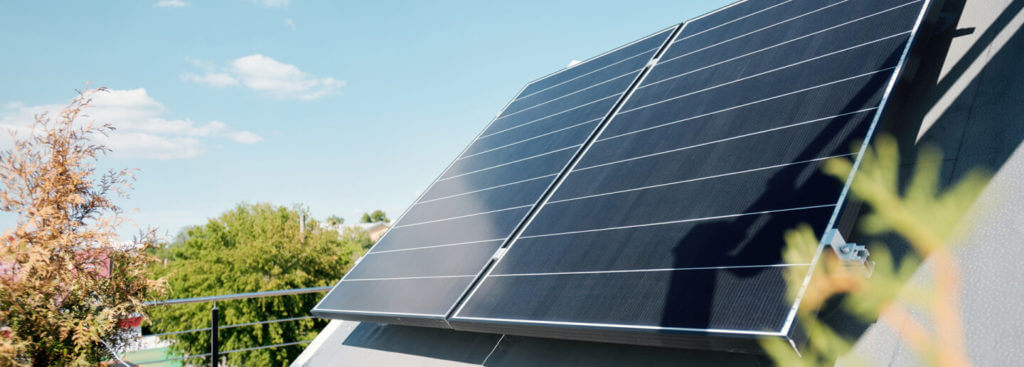 © Getty Images A man and woman hug in front of their new home.
© Getty Images A man and woman hug in front of their new home.The ultimate goal: save money with solar panels. How much will you save? The size of your system, roof orientation, sun exposure and local prices all affect your savings.
But heck, let's say you have a pretty crappy system and live in an area with decent sun exposure and reasonable electricity prices. In this case, your solar panels can pay for themselves in around 9-12 years or even less. In states like Hawaii and Massachusetts, the payback period is only five years, a relatively quick payback.
Solar panels save you money in two ways. First, solar panels reduce electricity bills. And second, if you have a grid-tied system, you can sell excess electricity back to the utility (this is called net metering). Let's take a closer look at each of them:
Cheap utility bills
Solar panels generate electricity. Solar energy users can obtain electricity from their own panels instead of purchasing electricity from a utility company. The exact amount they save depends on factors like the size of the solar power system and the amount of sunlight they receive, but it's not uncommon for people to see savings of $50 to $100 a month on their electric bills.
If your solar panels can meet all of your electricity needs, you're in luck. According to solarreviews.com, the average American household spends about $125 a month on electricity. Compensation that saves the family $1,500 in energy costs annually.
If your solar system uses Net Metering, you save even more.
net billing
If you have a grid-tied system, the excess electricity generated by the solar panels is fed back to the utility via the grid. The utility company credits you for unused energy generated by your facility. With these credits you can buy electricity for free.
Most states have some form of online measurement system. Check with your local utility company to see what plans they have, if any.
How much do solar panels cost?
Solar panels are a great way to save on your energy bills. However, the initial cost of installing solar panels can be high. Even with the 30 percent federal tax credit, the average cost of a solar panel ranges from $3,500 to $16,000. If you are considering installing solar panels, the following is recommended:
- Look for solar panel incentives that reduce the initial cost of installing solar panels.
- Discover the best personal loans to finance your solar panels
- Find out more about other ways to pay for solar panels
Although initial costs can be high, solar panels typically pay for themselves in nine to 12 years, meaning they will provide free energy for a lifetime of 25 years minus maintenance. Once you've paid the upfront cost, installing solar panels is a long-term investment to consider.
HAVING LUNCH:Warning: The biggest cashback card we've seen has an initial APR of 0% through 2024.
Using the wrong credit or debit card can cost you dearly. Our expert likes this best option, including an introductory interest rate of 0% until 2024, an insane repayment rate of up to 5%, and all with no annual fee.
In fact, this card is so good that our expert even uses it personally. Click here to read our full review for free and order in just 2 minutes.
Read our free review
We firmly believe in the golden rule, which is why editorial opinions are our own and have not been previously reviewed, endorsed, or approved by advertisers. The increase does not cover all market offers. Ascent's editorial content is separate from The Motley Fool's editorial content and is produced by a different team of analysts. The Motley Fool has a disclosure policy.



